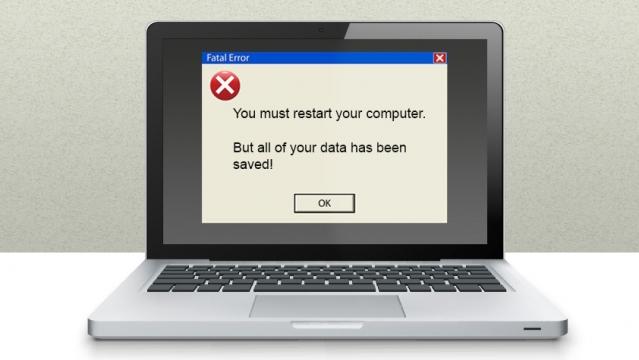We all know that gut-wrenching feeling of reloading a program after a crash, only to learn that hours of precious work have vanished into the ether. But if MIT computer scientists have anything to say about it, a glorious new era of crash-tolerant file systems may soon be upon us.
The file system is the part of your computer that writes data to a disk and keeps track of where it’s being stored. If your computer crashes while the file system is writing data — while you’re saving that beautiful Illustrator graphic you just spent hours on, or that book proposal you just wrote twenty pages of — the file can be hopelessly corrupted. If you’re lucky, you might spend the rest of your afternoon trying to recover your data. If not; hours re-doing your work and cursing the hateful computer gods who clearly have it in for you.
But! An end to the cycle of crash-induced misery is on its way. A team of researchers at MIT has just developed a new file system which, they say, is “mathematically guaranteed” not to lose track of your data during a crash. In its current iteration, the new file system is pretty slow, but the researchers are hopeful they will be able to extend their concept to more sophisticated designs in the future.
How did the computer scientists do it? Basically, a lot of hard maths. As MIT News explains, the team used a series of proofs to define mathematical relationships between each and every component in the file system, and ensure that these components would behave only in pre-determined and reliable ways during a crash. Having worked out all the proofs on paper, they wrote up the code for their file system. They then proceeded to test their code, to make sure it adhered to the logical relationships described in the proof. Apparently, this was a tedious process that took many, many iterations.
“No one had done it,” Frans Kaashoek of MIT’s Department of Electrical Engineering and Computer Science told MIT News. “It’s not like you could look up a paper that says, ‘This is the way to do it.’ But now you can read our paper and presumably do it a lot faster.”
So far, so good then. The researchers will be presenting the new file system at ACM Symposium on Operating Systems Principles in October, where it will be evaluated by the broader computer science community. But it may be a few years yet before the file system is ready for prime time, all of our personal computers are rendered crash-proof, and the memory of losing files during a botched save becomes as dull and distant as dial-up.
For now, my spirits are lifted simply by the knowledge that a bunch of really smart people are trying to tackle this problem. Godspeed, you magnanamous computer dorks.
